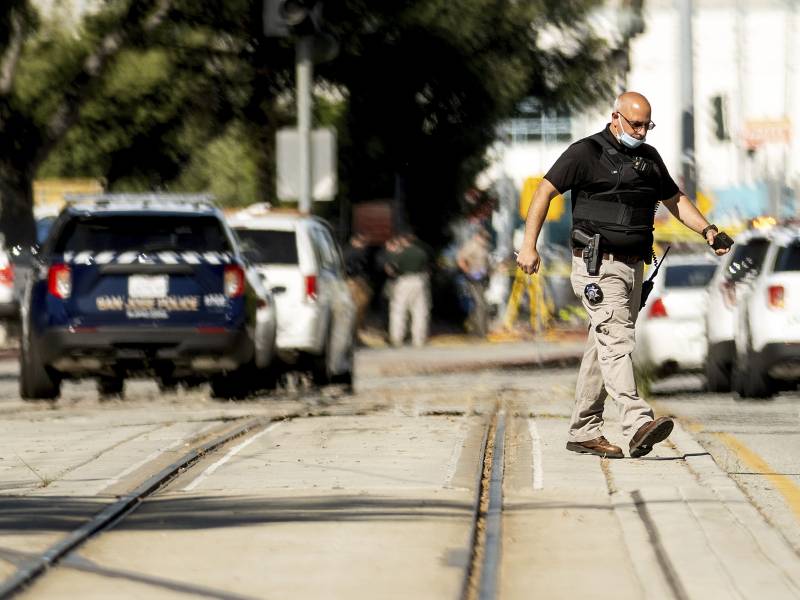“The President demonstrated a genuine commitment to partnering with cities to stem the tide of gun violence, and to scaling innovative solutions that are emerging in our cities,” Liccardo said. “I look forward to rolling up our sleeves with our federal partners. We have much work to do, and lives hang in the balance.”
San Jose is looking to spend $20 million from Biden’s American Rescue Plan and Federal Emergency Management Agency dollars to fund the Resilience Corps Program, which would provide employment for at-risk youth in the city. The U.S. Department of Justice is also launching a gun trafficking strike force with Liccardo’s support centered on the Bay Area in San Jose to stem the flow of guns used in crimes.
An Ambitious Vision for Gun Control
The gun control ordinances City Council passed last month include various strategies to combat gun violence and crime, including requiring licensed gun dealers to videotape their sales. City officials believe this could mitigate straw purchases, which is when someone legally buys a firearm on behalf of someone who cannot legally make that purchase themselves.
Two other proposals, in particular, have gained national attention because they’ve never been tried before:
- Mandating gun liability insurance for gun owners to incentivize owners to take safety classes, store their firearms safely and to practice safe behavior with their guns.
- Requiring gun owners to pay an annual fee to offset what taxpayers spend in the aftermath of gun violence.
Ted Miller, a researcher with the Pacific Institute for Research and Evaluation (PIRE), has been working with the city to draft the measures. His preliminary research found San Jose taxpayers spent $442 million between 2013 and 2019 on costs associated with gun violence, including emergency response, victim support and tax revenue lost when a victim can’t work.
“Taxpayers don’t think about it that way,” Miller said. “Many taxpayers don’t even realize that most emergency medical response is paid for by their local government, not by insurance.”
